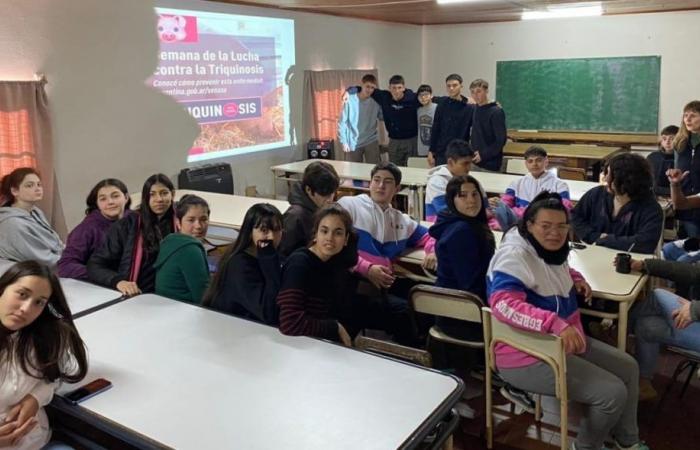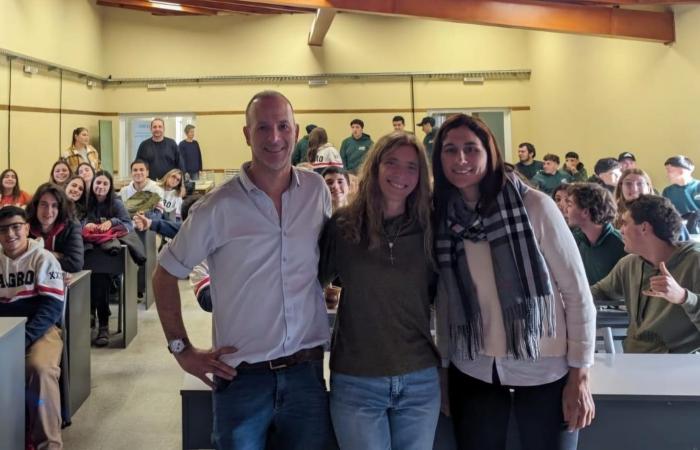Chivilcoy, (Buenos Aires) – He National Agri-Food Health and Quality Service (Senasa) – within the framework of the actions contemplated within its “Senasa goes to School” initiative – carried out various training activities in primary and secondary schools in central and northern Buenos Aires.
In this way, veterinarians of the Buenos Aires North Senasa Regional Center carried out different theoretical-practical sessions of formative interaction, exposing on the topic of trichinosis and involving students in the learning process, developed within the classroom. Teachers, management staff, assistants and family members of the students also participated in the sessions.
Thus, according to the levels of education (initial, primary, secondary), different pedagogical strategies necessary to transmit knowledge, from “playing and learning” at the initial levels to the interaction proposed through classes developed in secondary agrotechnical schoolsdelivering informative printed material necessary to complement each of the presentations provided.
The thematic itinerary developed in each of the schools went through nuclei of analysis such as What is trichinosis, characteristics of the disease, how it is transmitted from pigs to humans, what are its clinical symptoms, what preventive measures to take when handling and consuming pork (whether sausages or fresh meat), pig feeding and raising conditionsamong the most important points.
At the most advanced educational levels, Senasa professionals highlighted the importance of performing the artificial digestion test and described how cases of trichinosis that are detected in hatcheries are treated.where the objective of the inspections is to prevent meat with trichinosis larvae from entering the commercial circuit for subsequent consumption.
More than 500 primary and secondary level students from the following institutions in the region participated in these activities: School No. 501 of General Las Heras, School No. 18 of 9 de Julio, Agrarian Secondary Schools of Salto and Chivilcoy, Secondary Schools N° 1 and N° 2 of Alberti, the Agrotechnical Institute and the Educational Center for Total Production of Bragado, the Agrarian School of Ranchos, the Secondary Education schools N° 2 “Paraje El Arbolito” and N° 3 “Paraje Tronconi ” by Roque Pérez, the Center for Total Production of Brandsen and General Belgrano.
Trichinosis is a disease that can be transmitted from animals to people (parasitic zoonosis), through the consumption of insufficiently cooked meat or products made (cured) with pork or wild animals, such as wild boars or pumas, that contain parasite larvae in their muscles.
By holding these educational sessions, Senasa informs and raises awareness in the community about the importance of knowing when a food is safe and harmless, suitable for human consumption and what care we must take when preventing this disease.







